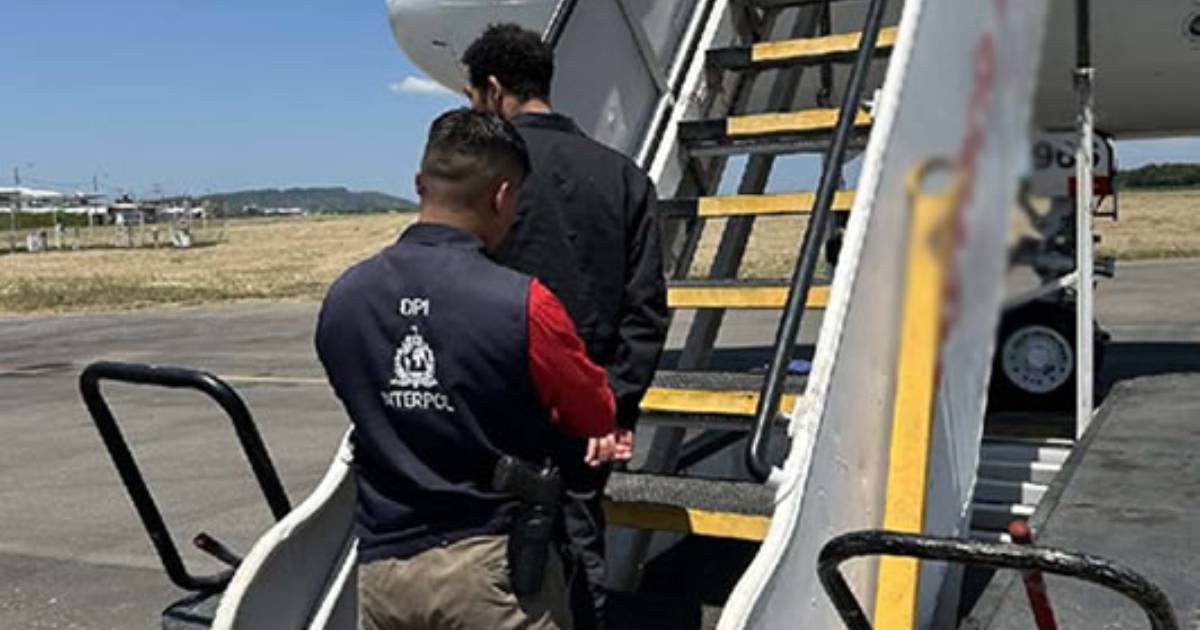A Cuban national, identified as C.R.L., who served over three years in a U.S. prison for serious offenses such as bank fraud and money laundering, is set to be deported to Mexico. This decision comes after U.S. authorities confirmed that the Cuban government refuses to allow his return, as reported by WRBL, a CBS affiliate television station in Columbus, Georgia.
This case, which reached the Middle District Court of Georgia, highlights a troubling scenario for Cuban migrants with criminal records. Despite completing their sentences, they may find themselves in a legal limbo for months or even years, detained with no country willing to accept them, leaving their lives suspended in uncertainty.
According to a court document dated June 30, 2025, after being released from federal prison, C.R.L. was taken into immigration custody under a final deportation order. However, his deportation was stalled for months because Cuba, his homeland, refused to take him back.
Faced with prolonged detention, C.R.L. filed a habeas corpus petition seeking release while a country willing to accept him was found. This request was denied. U.S. authorities announced that Mexico agreed to take him, leading to his immediate deportation to that country.
The Mexican government agreed to receive him as part of broader immigration cooperation agreements, similar to those that have facilitated the acceptance of Nicaraguan, Haitian, and Honduran migrants from the United States.
Judge Clay D. Land, who presided over the case, acknowledged the complexity of the situation, likening it to "a scene from Alice in Wonderland," due to the legal maneuvering by the petitioner's attorneys. The court ruled that it lacks jurisdiction to halt his deportation or to challenge the choice of receiving country, as these decisions fall solely under the purview of immigration courts or appeals circuits.
Judge Land remarked that the case underscores a dilemma within the U.S. immigration system: "Someone enters illegally, commits serious crimes, can't be sent back to their home country because it refuses them, complains about extended detention, yet objects to being sent to a third country willing to accept them."
Although the Cuban man retains the right to contest his removal to Mexico through available administrative channels, the court made it clear that his current petition has been entirely dismissed with no option for further action in this instance.
This situation contrasts with official statements from the Cuban regime. In March, Deputy Foreign Minister Carlos Fernández de Cossío claimed on the Mesa Redonda program that Cuba was open to receiving its deported citizens from the U.S., provided bilateral agreements were respected. Yet, cases like C.R.L.'s—and that of reggaeton artist Chocolate MC, despite a deportation order since 2022—reveal a more intricate reality: the Cuban government can selectively obstruct the repatriation of certain individuals, even after they have served their sentences.
Key Questions on Cuban Deportations to Mexico
Why was C.R.L. deported to Mexico instead of Cuba?
C.R.L. was deported to Mexico because the Cuban government refused to accept him back, leaving the U.S. authorities to arrange for his transfer to a third country willing to receive him.
What legal options does C.R.L. have to contest his deportation to Mexico?
C.R.L. can object to his removal to Mexico through administrative channels, but his current petition has been dismissed by the court without further options for action in this instance.
How does this case reflect on the U.S. immigration system?
This case highlights a significant challenge in the U.S. immigration system, where individuals who have served their sentences may remain detained without a clear path for repatriation if their home country refuses to accept them.
